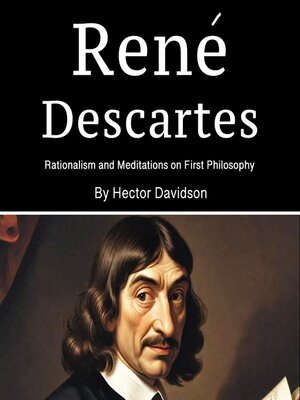René Descartes
audiobook (Unabridged) ∣ Rationalism and Meditations on First Philosophy
By Hector Davidson

Sign up to save your library
With an OverDrive account, you can save your favorite libraries for at-a-glance information about availability. Find out more about OverDrive accounts.
Find this title in Libby, the library reading app by OverDrive.



Search for a digital library with this title
Title found at these libraries:
| Library Name | Distance |
|---|---|
| Loading... |
René Descartes, often regarded as the father of modern philosophy, revolutionized the intellectual landscape of the seventeenth century. His groundbreaking ideas in mathematics, metaphysics, and epistemology laid the foundation for a new way of thinking, challenging the dominance of Aristotelian scholasticism. Born in 1596 in La Haye en Touraine, France, Descartes displayed an early aptitude for learning. He was educated at the Jesuit College of La Flèche, where he received a rigorous grounding in classical philosophy and mathematics. However, dissatisfied with the prevailing methods of acquiring knowledge, he sought a more systematic and rational approach, leading to his development of the Method of Doubt.
Descartes' intellectual pursuits extended beyond philosophy. His contributions to mathematics were equally significant, particularly in the creation of Cartesian geometry, which established a link between algebra and geometry through the use of coordinate planes. This innovation became a cornerstone of modern mathematics and physics, influencing generations of scientists. His emphasis on deduction and reason over mere observation shaped the trajectory of scientific inquiry, reinforcing the idea that true knowledge must be derived from fundamental principles.
His most famous philosophical work, Meditations on First Philosophy, published in 1641, sought to establish an unshakable foundation for human knowledge. In this work, he introduced the concept of radical skepticism, questioning the reliability of sensory perception and challenging assumptions about reality. Through this process, he arrived at his famous conclusion, "Cogito, ergo sum" (I think, therefore I am), which he considered the first indubitable truth. From this foundation, Descartes attempted to prove the existence of God and the distinction between mind and body, a theory known as Cartesian dualism.







